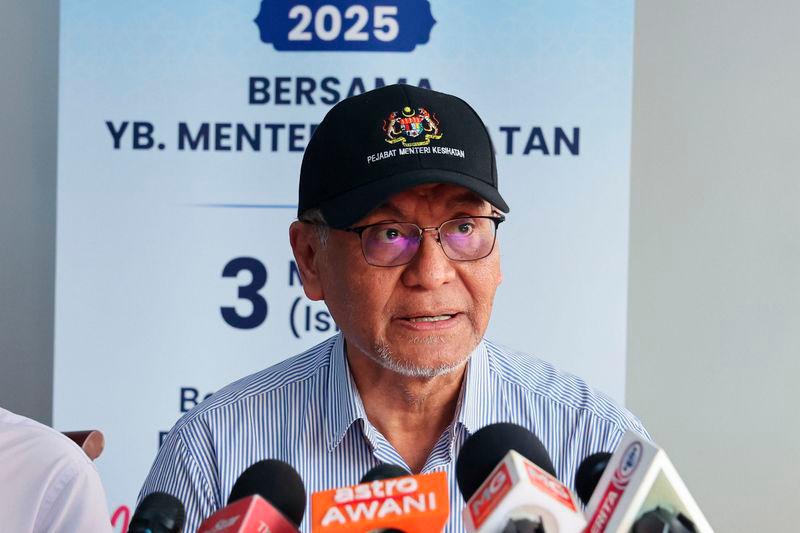PUTRAJAYA: Malaysia is taking a bold step in the early detection of lung disease by deploying artificial intelligence (AI) software at selected public health clinics to analyse chest X-rays.
The initiative seeks to curb the nation’s alarmingly high rate of late-stage lung cancer diagnoses. Currently, 90% to 95% of cases are only detected at Stage 3 or 4 when treatment is far less effective and survival rates plummet.
Health Minister Datuk Seri Dr Dzulkefly Ahmad said the rollout signals a fundamental shift in the national approach to lung health, anchoring it within a more integrated public health strategy targeting both communicable and non-communicable diseases.
“Instead of treating each disease in isolation, we’re now focusing on the lungs as a central point of intervention – an organ that’s exposed to multiple risk factors such as smoking, air pollution, occupational hazards and infections,” he said at the Health Ministry headquarters yesterday.
“This technology allows us to monitor lung health in a more comprehensive and proactive way, enabling earlier, more effective interventions before diseases progress to advanced stages.”
Disease Control Division (Non-Communicable Diseases) deputy director Dr Noraryana Hassan said the AI software, once integrated with existing X-ray machines, will enhance the accuracy and speed of diagnosis.
“The system can detect abnormalities like nodules or shadowing that may escape the human eye, thus improving the likelihood of catching diseases like lung cancer at an earlier, more treatable stage,” she said.
The pilot phase will see the AI technology deployed at seven public health clinics, each serving as a regional analysis hub.
The clinics selected are Seberang Perai (Penang), Kok Lanas (Kelantan), Kajang (Selangor), Luyang (Sabah), Beserah (Pahang), Pendang (Kedah) and Batu 9 Cheras (Kuala Lumpur).
Clinics not equipped with the software can refer X-ray images to these hubs for analysis. Each centre will also coordinate with nearby hospitals for follow-up consultations and access to advanced diagnostics such as CT scans.
Noraryana said the one-off cost of installing the AI software is approximately RM10,000 per clinic, but added that its accessibility across clinic networks means it does not need to be installed at every site.
The AI initiative falls under the Malaysia Lung Health Initiative 2025–2030, a national roadmap aimed at transforming how lung diseases are detected, treated and prevented.
The plan targets major respiratory illnesses including lung cancer, chronic obstructive pulmonary disease, asthma and tuberculosis.
It emphasises early screening, public education, integrated care and coordinated action to reduce exposure to known risk factors.
Additional components include enhanced anti-smoking campaigns, stricter enforcement of the newly passed Control of Smoking Products for Public Health Act 2023 (Act 852), improved workplace safety protocols and national-level efforts to address air pollution.
The initiative also aims to reduce the burden of preventable respiratory diseases by tackling root causes such as tobacco use, second-hand smoke exposure, environmental pollutants and occupational risks.
Malaysia will further elevate the conversation to the global stage with plans to table a resolution on integrated lung health at the upcoming World Health Assembly in Geneva.









